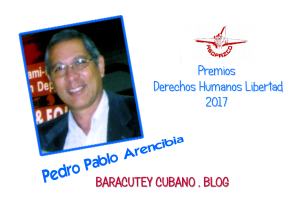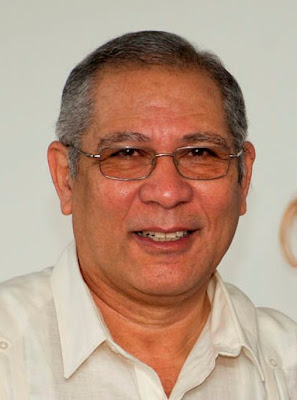Carlos Alberto Montaner: Mi última columna. Me retiro del “columnismo”. He cumplido 80 años. Padezco Parálisis Supranuclear Progresiva. El nombre lo dice todo.
Tomado de https://www.cubanet.org/
Mi última columna
*******
Me retiro del “columnismo”. Mis columnas, durante años, las distribuyó mi colaboradora más estrecha, Lucía Guerra. He cumplido 80 años. Padezco Parálisis Supranuclear Progresiva. El nombre lo dice todo.
*******
Carlos Alberto Montaner y familia. Fotos de archivos añadidas por el bloguista de Baracutey Cubano
Por Carlos Alberto Montaner
4 de mayo, 2023
.jpg) MADRID, España. — Me jubilo sin júbilo alguno. Me retiro del “columnismo”. Mis columnas, durante años, las distribuyó mi colaboradora más estrecha, Lucía Guerra. He cumplido 80 años. Padezco Parálisis Supranuclear Progresiva. El nombre lo dice todo.
MADRID, España. — Me jubilo sin júbilo alguno. Me retiro del “columnismo”. Mis columnas, durante años, las distribuyó mi colaboradora más estrecha, Lucía Guerra. He cumplido 80 años. Padezco Parálisis Supranuclear Progresiva. El nombre lo dice todo.
Es una enfermedad rara del cerebro. Me la diagnosticaron en el hospital “Gregorio Marañón” —uno de los mejores de España— tras una resonancia magnética. Tres personas por cada 100.000 la padecen. No es contagiosa, ni heredada. No hay cura para ella. No se sabe cómo comienza ni por qué se origina. Es de la familia del “parkinsonismo”, pero sin temblores. De ahí la confusión en el diagnóstico. Se caracteriza por impedirme conversar bien y leer, más allá de los titulares (Linda, mi mujer, y nuestra hija, Gina, me leen los diarios), no así escribir todo lo “bien” que me ha permitido llevar más de medio siglo escribiendo —entre otras cosas— una columna “sindicada” a la semana. He escrito miles de columnas y debo a mis artículos todo lo que he hecho posteriormente.
Este PSP que ahora me afecta se caracteriza (como el otro, el de los comunistas cubanos), por el “habla lenta o arrastrada” que hizo que dejara los comentarios en CNN en español (donde tanto compartí con Andrés Oppenheimer, Camilo Egaña y otros notables periodistas), pese a los esfuerzos por retenerme que hizo mi amiga Cynthia Hudson, presidente de la cadena. O en veinte estaciones de radio, comenzando por El Sol de la mañana, bajo la dirección del matrimonio dominicano Espaillat, Montse y Antonio, siguiendo con La hora de la verdad en RCN de Bogotá, en un espacio dirigido por Fernando Londoño, hasta la modestísima emisora por Internet que orienta Orlando Gutiérrez hacia Cuba, y tiene uno de sus más sólidos baluartes en Julio Estorino. Además, durante años mis comentarios llegaron a Cuba por medio de Radio Martí. Gracias por tolerarme en sus filas.
(Carlos Anerto Montaner y su esposa Linda)
Al periodista cubano Carlos Castañeda lo vi llegar a Puerto Rico a finales de los sesenta con un trabajo que a mí me parecía muy difícil: levantar El día de Ponce hasta que compitiera con El Mundo de San Juan. Si yo hubiera sabido los planes de Carlos con cierta antelación me habría quedado a librar esa batalla, pero ya tenía hasta los boletos para España. Había sido aceptado en la Universidad Complutense de Madrid para hacer el doctorado. Mi familia y yo nos embarcábamos en una nueva aventura europea.
Era el primer semestre de 1970. Castañeda mudó El Día para San Juan, le cambió el nombre, le llamó El Nuevo Día e hizo un tabloide con grandes titulares, fotos ad hoc y grandes caricaturas. Pronto se quedó solo en el terreno. El Mundo cerró. De aquel lance antes de instalarme en Madrid guardo un consejo que fue muy importante en mi vida profesional: “Busca en New York a Joaquín Maurín —me dijo Castañeda—. Es un exiliado español. Dile que tú quieres escribir columnas para su agencia ALA (American Literary Agency). Ahí están los mejores de la lengua, entre otros, Germán Arciniegas y Pablo Neruda”. Lo hice. Maurín me pidió una muestra. Se la di. Cuando la encontré reproducida en 156 diarios me juré cuidar mis columnas. Y así he hecho desde entonces.
Joaquín Blaya me llamó a Madrid. Era un chileno, presidente de Univisión. Luego lo sería de Telemundo. Me pidió un comentario a la semana y dejó que yo escogiera el tema. Sería, claro, de actualidad. La promesa de Maurín se había cumplido. ALA le daba difusión a mis ideas y éstas me abrían otros campos como la TV, mucho mejor pagados que la prensa plana. Pero Blaya demostró que era un ejecutivo de altísima calidad. En una oportunidad en que me dieron un minuto para explicar una hipótesis de un cura antropólogo, profesor de una universidad de NY, sobre el programa del Welfare, diseñado fundamentalmente por hombres, y su impacto en mujeres de bajos recursos. Sin duda, un tema polémico. El canal 41 de NY vio la rentabilidad política, o actuó por temor, bajo la indicación de la gerencia. Lo cierto es que Al Sharpton, ministro baptista, fue a pedir mi cabeza al canal, sin haber oído mi comentario en español, y Blaya me defendió con total firmeza.
Cuando The Miami Herald parió un pliego en español creyeron que sería un fenómeno pasajero. Pero luego comprobaron que aumentaba el perímetro del castellano. Como el mundillo de los editores de diarios es muy reducido, se hablaba con mucho respeto de Carlos Castañeda y de la hazaña que había realizado en Puerto Rico. Lo llamaron y de ahí nació El Nuevo Herald en la primera parte de los ochenta. Allí comparecieron Roberto Suárez, Gustavo Pupo Mayo, Sam Verdeja, Armando González, Roberto Fabricio y el gran Carlos Verdecia, exdirector de El Nuevo Herald.
Creo que fue Pupo Mayo. Me ofrecieron la dirección de El Nuevo. No la acepté. No quería desplazarme de España. Me ofrecieron dirigir la página de “Opiniones”. Puse dos condiciones para que no aceptaran: sólo estaría presente la primera semana del mes. Las otras tres las pasaría en España. (A fin de cuentas, inauguré el trabajo a distancia que se popularizó durante la pandemia). La segunda condición era que fueran mis adjuntos Araceli Perdomo, de cuya integridad se contaban cosas muy positivas en la redacción, y Andrés Hernández Alende, para no cometer errores ni injusticias. Al extremo que, andando el tiempo, tras mi renuncia, Araceli y Andrés me sustituyeron en el cargo. A lo largo del tiempo El Nuevo Herald ha sido mi casa.
He tenido la oportunidad de escribir en los mejores periódicos de América Latina, de España y de USA. En los últimos tiempos mi columna semanal ha aparecido en El Líbero, el mejor periódico digital de Chile, y en El Independiente, un excelente diario digital que sacan Casimiro García-Abadillo, Victoria Priego (dos grandes veteranos del periodismo español) y —en la parte internacional— Ana Alonso. Esos dos diarios completan el cuadro del ámbito de la lengua en el que he tenido el privilegio de dar la batalla de y por la libertad. Al final de mis memorias, Sin ir más lejos, publicadas por Silvia Matute en Debate, editora también de “Penguin-Random House”, en español, cité al filósofo Julián Marías por su humilde frase. Hoy lo vuelvo a hacer: “Hice lo que pude”.
************
My last column
By: Carlos Alberto Montaner
I retire without any joy. I retire from “columnism.” For many years, my columns were distributed by my closest collaborator, Lucía Guerra. I have turned 80 years old. I have Progressive Supranuclear Paralysis. The name says it all.
It is a rare disease of the brain. I was diagnosed at the “Gregorio Marañón” hospital—one of the best in Spain—after an MRI. Three people out of 100,000 suffer from it. It is not contagious, nor inherited. There is no cure for it. It is not known how it begins or why it originates. It belongs to the “Parkinsonism” family, but without tremors. Hence the confusion in the diagnosis. One of its characteristics is that it prevents me from talking well and reading beyond the headlines (Linda, my wife, and our daughter, Gina, read the newspapers to me.) It also prevents me to write everything as “well” as it has allowed me for more than half a century to write—among other things—one “syndicated” column per week. I have written thousands of columns and I owe everything I have subsequently done to my articles.
This PSP that now affects me is characterized (like the other one, that of the Cuban communists) by the “slow or slurred speech” that made me leave my commentaries on CNN en Español (where I shared so much with Andrés Oppenheimer, Camilo Egaña and other distinguished journalists,) despite the efforts of my friend Cynthia Hudson, the network’s president, to retain me. Or on twenty radio stations, starting with El Zol de la Mañana, under the direction of the Dominican couple Espaillat, Montse and Antonio, continuing with La Hora de la Verdad (The Hour of the Truth) on Bogotá’s RCN, in a space directed by Fernando Londoño, up to the very modest Internet station that Orlando Gutiérrez directs towards Cuba, and has one of its most strong supporters in Julio Estorino. In addition, for years my commentaries reached Cuba through Radio Martí. I thank them for tolerating me in their ranks.
I saw Cuban journalist Carlos Castañeda arrive in Puerto Rico at the end of the 1960s with a job that seemed very difficult to me—to grow El Día, from Ponce, until it would be able to compete with San Juan’s El Mundo. If I had known about Carlos’ plans in advance, I would have stayed to fight that battle, but I already had even the plane tickets to Spain. I had been accepted at Madrid’s Universidad Complutense to study my PhD. My family and I were embarking on a new European adventure.
It was the first semester of 1970. Castañeda moved El Día to San Juan, changed its name, called it El Nuevo Día, and made a tabloid with big headlines, ad hoc photos, and big cartoons. It was soon alone on the field. El Mundo shut down. From that incident before settling in Madrid I keep a piece of advice that was very important in my professional life. “Look for Joaquín Maurín in New York,” Castañeda told me. “He is a Spanish exile. Tell him that you want to write columns for his agency ALA (American Literary Agency). They have the best in Spanish language, among others, Germán Arciniegas and Pablo Neruda.” I did it. Maurín asked me for a sample. I gave it to him. When I saw it published in 156 newspapers, I swore to take good care of my columns. And I have done it ever since.
Joaquín Blaya called me in Madrid. He was from Chile, and president of Univision. Later he became president of Telemundo. He asked me for a weekly commentary, letting me choose the topic. It would, of course, be about current affairs. Maurín’s promise had been fulfilled. ALA spread my ideas and they opened up other fields for me, such as TV, which paid much better than the printed press. But Blaya showed that he was an executive of the highest quality, in an occasion when I was given a minute to explain a hypothesis from an anthropologist priest, a professor at a New York university, about the welfare program, designed mainly by men, and its impact in low-income women. Definitely a controversial topic. NYC channel 41 saw a political gain, or acted out of fear, under the management’s indications. The truth is that Baptist minister Al Sharpton went to the channel screaming for my head, without having heard my commentary in Spanish, and Blaya defended me with resolution.
When The Miami Herald published a section in Spanish, they thought it would be a passing phenomenon. But then they verified that the perimeter of Castilian language increased. Since the world of newspaper publishers is very small, they spoke with great respect about Carlos Castañeda and the feat he had accomplished in Puerto Rico. They called him and El Nuevo Herald was born in the early 1980s. Among those who went to work there were Roberto Suárez, Gustavo Pupo Mayo, Sam Verdeja, Armando González, Roberto Fabricio and the great Carlos Verdecia, former editor of El Nuevo Herald.
I think it was Pupo Mayo who offered me the position of El Nuevo’s editor. I didn’t accept it. I did not want to leave Spain. I was offered to run the “Opinions” pages. I stated two conditions so that they would not accept—I would only be physically present the first week of each month. The other three I would be in Spain. (After all, I launched the remote work that became popular during the pandemic.) The second condition was that my assistants should be Araceli Perdomo, about whose integrity very positive things were told in the newsroom, and Andrés Hernández Alende, so as not to commit mistakes or injustices. To the extent that, over time, after my resignation, Araceli and Andrés replaced me in the position. Throughout time El Nuevo Herald has been my home.
I have had the opportunity to write in the best newspapers in Latin America, Spain and the United States. In recent times my weekly column has appeared in El Libero, the best digital newspaper in Chile, and in El Independiente, an excellent digital newspaper published by Casimiro García-Abadillo, Victoria Priego (two great veterans of Spanish journalism) and—in the international part—Ana Alonso. These two newspapers complete the picture of the language field in which I have had the privilege of fighting the battle of and for freedom. At the end of my memoirs, Sin ir más lejos (Without going any further,) published by Silvia Matute in “Debate”, also editor of Penguin-Random House, in Spanish, I quoted philosopher Julián Marías for his humble phrase. Today I do it again, “I did what I could.” [©FIRMAS PRESS]
*@CarlosAMontaner. CAM’s latest book is Sin ir más lejos (Memories.) Published by Debate, a label of Penguin-Random House, the book is available through Amazon Books.
Etiquetas: balance.Hice lo que pude, CAM, Carlos Alberto Montaner, CNN, column, cuba, despedida, España, last, última columna












1 Comments:
No soy su juez, pero acabó mal y decepcionó, por no decir que defraudó. No hablo solamente de su penosísima fase final, en la cual bien pudo haber sido un asalariado del infame New York Times. Yo detecté problema mucho antes, y cuando salió con un desafiante ditirambo a Mandela tras la muerte del mismo, lo descarté por completo. Efectivamente, después de tal falta de decoro su conducta fue de mal en peor. Otro intelectual cubano que no dió la talla.
Publicar un comentario
<< Home